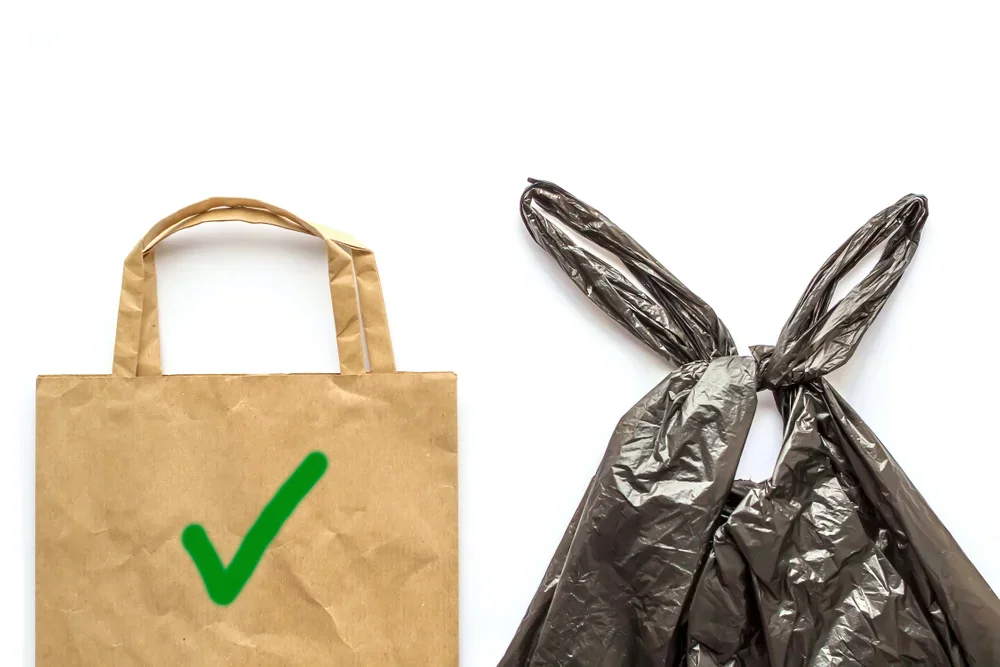A trip to the grocery store is causing a moral dilemma across the globe- to use a plastic bag or not to use the plastic bag. In the wake of global warming and climate change, which hangs over the heads of the people like a sword, young Hamlets must find a solution to this moral dilemma fast. One can determine which of the two is better considering the following-
- The manufacturing
- The durability of the bags
- The efficiency of recycling
- The Decomposition factor.
In terms of manufacturing, while plastic bags are made of petroleum, paper bags are made of trees. While the production of both releases toxins and chemicals into the environment paper-bags are ecologically expensive. Firstly, the cutting down of trees causes massive deforestation, and a relative increase in the carbon emission, since trees absorb carbon dioxide from the environment. Even if new trees are planted, the geographic demography, and the ecology of the place for years to come. Not to mention that increasing forest fires pose a threat to the shriveled forested area across the globe. Moreover, since paper bags consume more space, and are bulkier, they require greater transportation units to carry them from one place to another. Paper bags also produce 70% more air pollution and 50% more water pollution than the manufacturing of plastic bags. The production of paper bags consumes four times the energy required to produce plastic bags.
The durability of paper bags is less than that of plastic bags. Paper bags are more prone to wear and tear and are not suitable to carry wet groceries inside them. While, on an average, a paper bag can be used 3-4 times, with proper care, a plastic bag can be used at least 10-12 times with minimal care.
Recycling and decomposition give a greater insight into this debate. While paper bags are take lesser time to decompose, cities are not equipped with the machinery to recycle paper bags. As a result they reach air and water tight landfills, suitable for storing non-biodegradable materials for a long duration, therefore, while they are suitable for plastic bags, they do not allow for the decomposition of paper, as they cut off the supply of water and air to the decomposing paper.
While special landfills are available for plastic, less than 20% plastic reaches those landfills. the rest floats in the immediate surroundings, especially the water bodies, posing danger to the ecosystem. An exponential increase in animal deaths due to the consumption of plastic has been seen in the decade due to its littering.
Therefore, the definite answer lies in reusability. By investing in reusable plastic bags, and using them till they are worn out can be the solution to the plastic vs paper dilemma. Both paper and plastic bags have their respective harms yet the solution lies in choosing the less harmful one, and further reducing the harms of each of them by their continuous use, to maximize their utility and reduce the overall consumption of either one of them.








